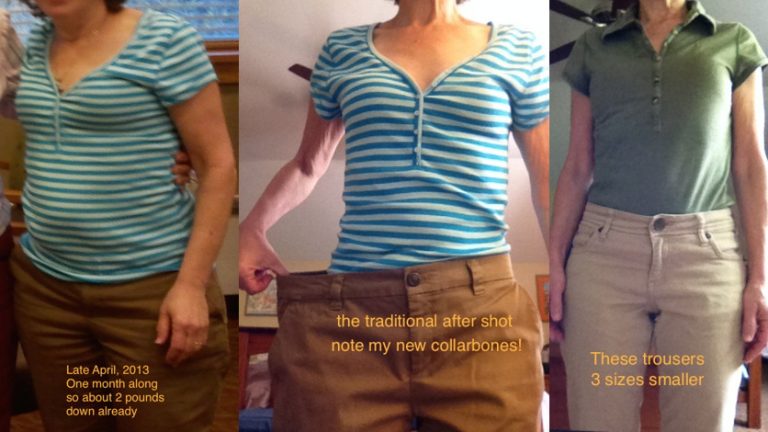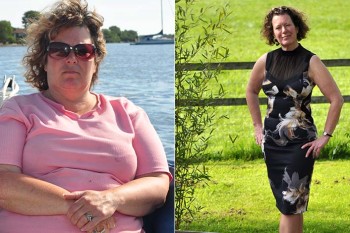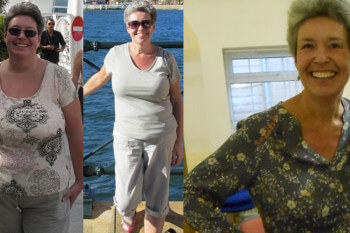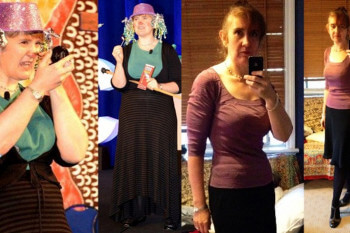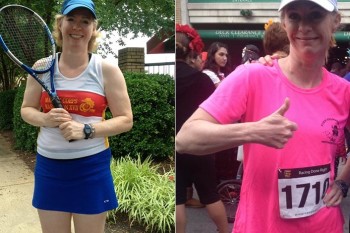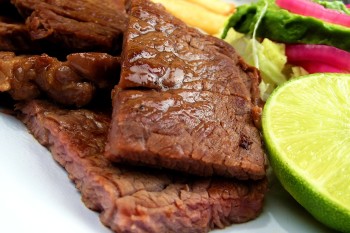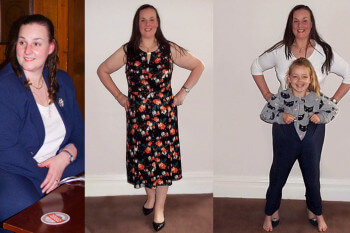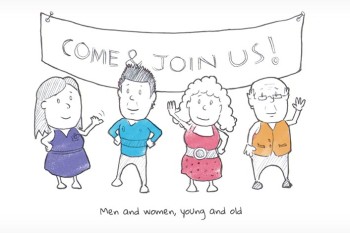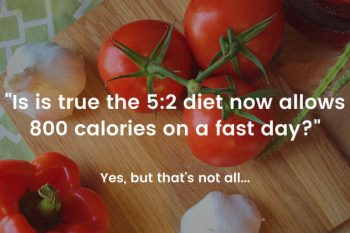Jane’s story
I’ve been somewhat overweight nearly all my adult life. But I gained only gradually, and it was just a couple of years ago that I got to the point where my BMI crossed into the overweight category. By then I knew I wasn’t looking good, and I certainly wasn’t feeling good, but what I didn’t know was how to change. I’ve always been opposed to traditional diets (ditto for untraditional, eat-nothing-but-x diets), and in the past, my approach to weight loss has been either to just try to limit “the bad stuff” (doesn’t work) or to write down everything I ate in an effort to hold myself accountable (works better, but is, in my opinion, exhausting and time-consuming and obsessive).
In early March of 2013, I read an article in the New York Times about Dr. Michael Mosley and 5:2. It felt like an epiphany – the approach made so much sense to me that I knew that it would work. I fasted for the first time a couple of days later. But – and here is one way in which my story is different from many of the others – I didn’t weigh myself first or take measurements or even note the date. I just took a deep breath and jumped into the water, so to speak.
Even after I started I was afraid to weigh myself – what if I wasn’t losing, or just losing at a snail’s pace? So the first time I weighed myself, it was the end of June. I had lost 11 pounds (approximately – I have used as my start weight my all time high of a few months earlier, when my BMI was over 25) and was halfway to my goal. I had guessed I was doing well given the fact that my clothes no longer fit, but what a thrill it was to see the number on the scale!
I have never been one to talk about my weight, and I didn’t mention what I was doing to a soul. So it wasn’t till about then – months after I started 5:2 – that anyone even commented that I was thinner. First my husband noticed, then a few others. I think that when you start out only moderately overweight as I did, some people are afraid to compliment you, maybe because the implication is that you had been fat. Well, go ahead and hand out those compliments. They sure felt good to me.
I originally had a small lunch and a small dinner on fast days, but like many fasters, soon found that it was easier to eat just one meal at dinnertime. Ever since I started fasting, I have been amazed at how easy it is to eat very little one day, knowing that the next day will be “normal”. I counted calories on fast days for a while, but soon realized that I am aware enough of foods’ caloric value that I don’t need to count as I have a sense of what 350 – 500 calories “looks” like.
I reached my goal weight in early 2014, about 10 months after I started. I have settled on 6:1 for maintenance. On Mondays, I don’t eat until my small dinner. I have resolved to do this for life, and am totally confident that I can. I have also resolved to weigh myself weekly for life. In the past, after succeeding at losing some weight, not weighing (also known as sticking my head in the sand) has been my downfall. Probably I could maintain without fasting at all. However, I am hoping that I will benefit in other ways from fasting. In particular, I hope to decrease my chances of developing a dementia, which runs in my family, and I hope to improve my cholesterol numbers, which are better than before I started fasting, but still not very good. These potential fasting benefits are not proven, but there is strong evidence to suggest they are real.
My current challenge is to get fit. I’ve never been a couch potato, but really being fit is a whole different story. However, my excuses are all gone. I no longer have fat that jiggles uncomfortably when I run. I can no longer be afraid of failure, because I have shown myself how well I can succeed.
Intermittent fasting is straightforward, flexible, forgiving, and gratifying. What’s not to like?

